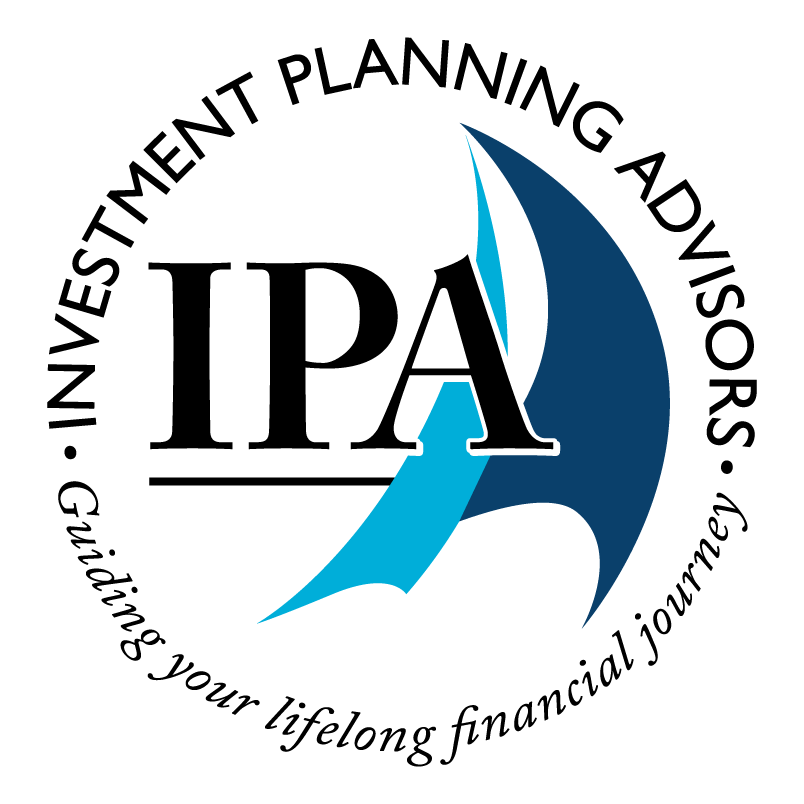Investment Planning Advisors
Services FAQ
Read some of the frequently asked questions about our services.

Are you a fiduciary?
How do you get paid?
Part of being a fiduciary is being fee-only. We do not sell any products or take commissions, as that is considered a conflict of interest and a breach of fiduciary duty. Instead, we get paid in one of two ways:
- through investment management fees, which are a percentage of assets that we manage, or
- through a financial planning fee, which is a fixed amount based on the complexity of the plan.
Our investment management fees are tied to the performance of your accounts; as the portfolio increases in value, the financial planner’s compensation also increases, and vice versa when the market drops and the portfolio value also drops. This fee model incentivizes us to grow and maintain client portfolios. Additionally, we use a tiered schedule which begins at 1% for the first $100,000. As the portfolio value increases and reaches the next tier, we lower the marginal fee to 0.8%.
Our financial planning fees (without investment management) are also charged annually, but are a fixed amount, depending on the complexity of the plan. They range from $750 to $3,000.
What are my all-in costs?
If you sign up for financial planning only, your only cost is the fixed annual fee determined at the beginning of the planning engagement.
What are your qualifications?
What type of clients do you work with?
We work with a variety of individuals and families, as well as small business owners. Most are located in the North Georgia area, but we can serve clients all over the country. Our client base is very diverse — whether you are a retiree looking for income investments or you are a younger, more growth-oriented investor, or somewhere in between, we look forward to helping you.
Since 2023, we have also partnered with Forsyth County to offer financial planning services to all county employees. We educate, meet with, and develop personalized financial plans for these individuals.
Can you provide referrals or endorsements for your services?
We have also received great reviews on Google.
How will our relationship work?
At that point, we will guide you through the onboarding process of opening and funding accounts. Typically, we meet annually for a comprehensive review of your investments and financial plan, though you will hear from us throughout the year—sometimes to check in, other times to share our thoughts on the economy or current events. We believe that communication is an important part of the client-advisor relationship.
What’s your investment philosophy?
- Financial Analysis – done during the initial meeting, we determine your current financial status and what your goals are.
- Goal-Based Allocation Planning – we build a financial plan for you, and review together your strengths, weaknesses, opportunities, and threats.
- Portfolio Selection – based on the financial plan, we determine the best portfolio to reach your stated goals, balancing return potential with risk.
- Implementation – we set up the investment account(s) and facilitate transfers, contributions, and rollovers, and invest the funds in accordance with your agreed upon plan.
- Monitoring and Rebalancing – periodically we review and rebalance your portfolio to ensure that your investments remain on target and are consistent with your goals.
- Reporting – we provide you with regular updates to measure your financial progress.
What asset allocation will you use?
We manage investments through a series of model portfolios. Instead of managing hundreds of individual accounts, each account is tied to a model investment portfolio that is best for their circumstances. This allows us to react quickly to changing market conditions and ensure every client is treated the same.
What investment benchmarks do you use?
We also use individual index comparison from S&P, Russell, MSCI, and Wilshire. For example, the S&P 500 index is the most widely used.
